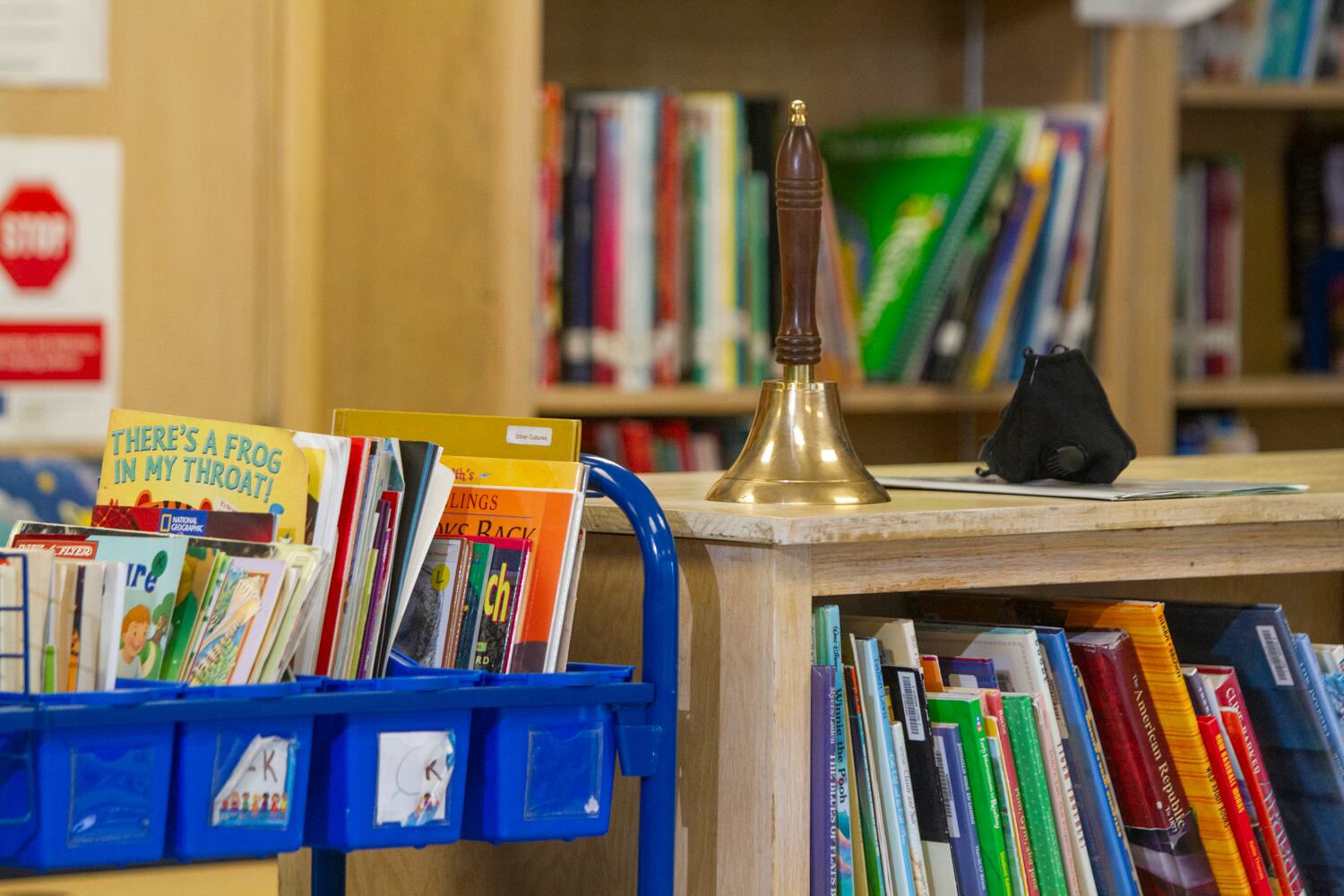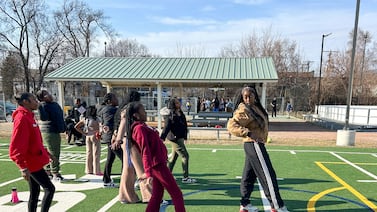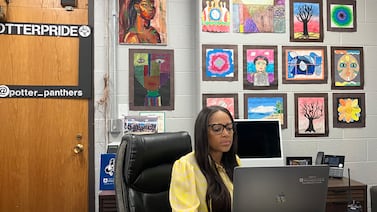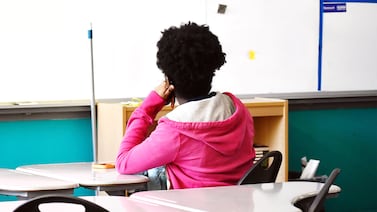It took Maggie Przytulinski seven years to get her younger brother, Mark, the help he needed in school.
Przytulinski said Mark, who has autism, Down syndrome, and is non-verbal, had an Individualized Education Program, or IEP, a legally binding document that outlines the services for students with disabilities. It requires multiple meetings every year and a significant amount of legal paperwork.
Adding to the complexity? Przytulinski’s Polish-speaking mother knows only basic English.
Przytulinski, who speaks both English and Polish, said she often found herself taking on the role of translator in the IEP process.
“It was difficult because not only I had to fight for the service for my brother and place him in the appropriate placement,” Przytulinski said, “but at the same time, I had to translate for my mom.”
That should no longer be the case, thanks to a legal settlement reached earlier this month between Chicago Public Schools and a group of families, including Przytulinski’s. It will guarantee language interpretation services to the families of students with disabilities. The Illinois State Board of Education reached a similar settlement late last year.
The settlement mandates Chicago Public Schools provide language translation services for non-English speaking parents at all IEP meetings, which are required by federal law for students with disabilities who are receiving services.
Under the settlement, CPS also agreed to hire 10 full-time certified interpreters or translators, five of whom will serve only in those roles and provide translated versions of documents including reports, evaluations, and recommendations within 30 days of IEP meetings.
Parents can also request the interpreter not be a part of the IEP team. It can be difficult for interpreters to be impartial if they are playing a dual role, which makes the provision a critical component of the settlement, said Olga Pribyl, program vice president of the special education rights clinic at Equip for Equality.
CPS does not comment on settlements, but is committed to ensuring that the needs of students with disabilities are met and will continue to work with ISBE, staff, and parents to provide the best educational experience and opportunities, according to a district spokesperson.
Equip for Equality has been working on the challenges faced by families for years. Pribyl said the advocacy group tried to resolve the problem directly with the state and district.
“We alerted both the State Board of Education and Chicago Public Schools about our concerns with language access issues before we filed the complaint,” Pribyl said. “We had discussions with them, so it’s something that we were hoping we could resolve collaboratively.”
In January 2018, Equip for Equality and Kirkland & Ellis filed a class-action lawsuit on behalf of more than a dozen families, including Przytulinski’s.
Grant Jones, litigation associate at Kirkland & Ellis LLP, represented the families. The case was personal for him, he said, as a former sixth grade English teacher and the child of an immigrant whose first language was not English.
Jones said it took time and creativity to structure a settlement that all parties could agree on. But in the end, he said, he felt everyone had the same goal: to help students and their families access the services they needed to meaningfully participate in IEP meetings.
For the next two years, CPS must file reports each semester to show they’ve complied with the settlement. ISBE will also propose regulations to make sure qualified interpreters and translated documents are provided in districts across the state.
Although federal law requires family members be included in IEP meetings, it does not specify details such as which documents must be translated for families.
“It’s hopefully some precedent that we can set to maybe make changes even further outside of Chicago and Illinois,” Jones said.
The case was dismissed without prejudice, meaning that if CPS and the ISBE do not comply, the plaintiffs can bring the lawsuit back, Jones said. Pribyl encouraged families who do not receive language interpretation and translation services to contact Equip for Equality.
Przytulinski’s brother is now 22. Mark attended CPS schools from preschool until age 14, when he transitioned to a private day school for students with similar disability-related needs, according to Amanda Klemas, senior attorney in the special education rights clinic at Equip for Equality. Przytulinski said she and her mother had to push the district to allow him to attend the therapeutic day school, where CPS covered tuition – a service the district sometimes provides for students with severe disabilities.
She said she’s happy to know it will now be a little easier for families like hers to get the help they need.
Eileen Pomeroy is a reporting intern for Chalkbeat Chicago. Contact Eileen at epomeroy@chalkbeat.org.







